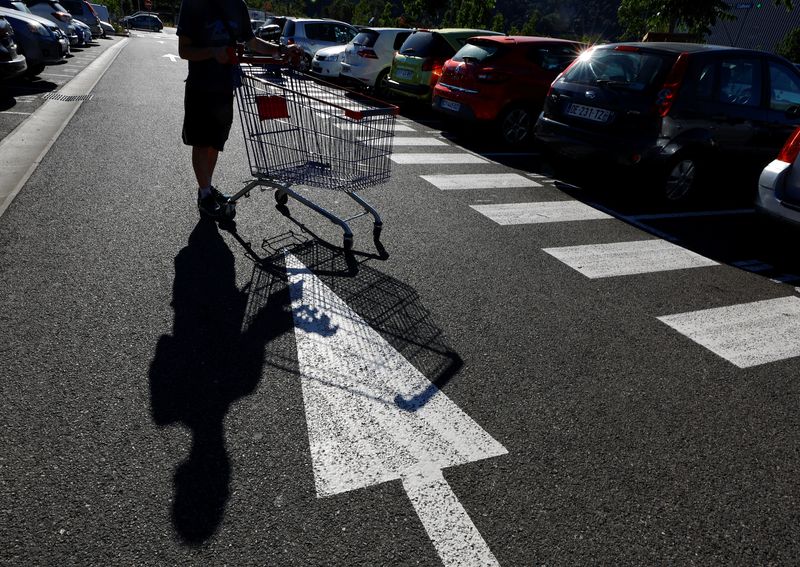(Reuters) - Eurozone is headed toward "stagflation" as efforts to stamp out a surge in inflation will bring growth to a near halt in the second half of the year, UBS said on Thursday, while trimming its 2022 economic forecast for the region.
The brokerage cut its GDP estimate to 2.7% from 2.9% for 2022 and said its forecast implies that the region, while clearly slowing down, would narrowly avoid a technical recession.
"Together with high inflation, this scenario qualifies as stagflation," analyst Reinhard Cluse wrote in a client note.
The region's economy grew much faster in the first quarter of the year than in the previous three months, but the negative impact of the Ukraine war is expected to be felt in the second quarter.
UBS expects Germany to come closest to a recession, with zero growth in the second half, closely followed by Italy. In contrast, growth in France and Spain should hold up slightly better, Cluse said.

It also expects a limited rebound in 2023 as inflation decelerates and confidence recovers.
The brokerage said persistently high inflation would be a drag on household consumption, while higher input costs, uncertainty about energy supplies, the tightening of financial conditions and weakening global demand would likely weigh on corporate activity.